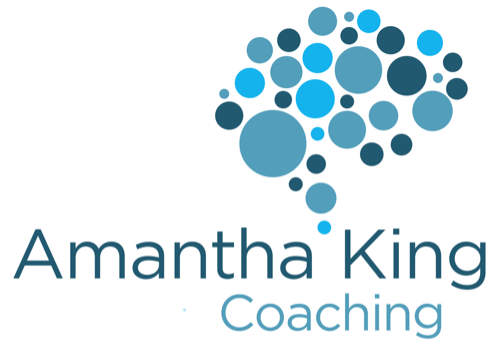Benefits
When a person is working within their strengths, to a plan they are motivated to follow, they experience professional and personal growth which provides immense satisfaction and emotional pleasure.
They feel more confident that they are being true to themselves and this has huge impacts on the individual which translates across all areas of their life and the people around them. Motivation and energy remain positive which builds resilience and transfers into teams.
Below are many of the impacts I have observed and had feedback from clients on as a result of engaging in a..
Strengths
Insights
Confidence
..performance coaching program.
For Individuals and Teams
Individual at Work.....
- Greater self-awareness
- More effective problem-solving
- Improved relationships at work
- Higher self-confidence
- Greater career success
- Higher levels of job satisfaction.
- Increased empathy and support
- Smoother transition to management/leader role
Individual Personal Life.....
-
- Higher levels of well-being
- Lower stress levels
- Higher levels of motivation and energy
- Better communication skills
- More understanding and acceptance
- More focus on life goals
- More attention on key roles within your life
The Team.....
-
- Improves team performance, productivity and results
- Better understanding of strengths of individuals
- Knowledge and management of the team’s performance risks
- Key tasks given to the correct people
- Enables complementary working
- Empowered to contribute
- Promotes cross team collaboration
- Appreciation of diversity
- Focused development and training needs builds clarity around team purpose, priorities and roles
- Encourages more open, authentic communication
- A positive and energised team environment
- Improves confidence, resilience and resourcefulness
Leaders.....
-
- Understand how to bring your authentic style
- Learn about strengths, habits & risks
- Optimise your unique strengths and workplace energisers
- Unlock energy and ideas in others
- Address diversity and inclusion
- Learn about team’s performance risks
- Key tasks given to the correct people
- Everyone feeling empowered to speak up and contribute
- Leadership effectiveness – through four leadership habits
- Create motivation through values
- Deliver excellent results and value to customers and stakeholders
- Coach employees to find strengths
- Regulate energy within the workplace
- Setting pace & prioritising opportunities to reflect, plan & review work
- More effective understanding of strengths of individuals

For the Business
The common language of strengths creates a cohesive and collaborative environment, fostering a culture of appreciation, respect, and continuous improvement within the organisation.
Strengths based organisations are the future and they are already delivering results which include:
- 10% to 19% increased sales
- 14% to 29% increased profits
- 3% to 7% higher customer engagement
- 6% to 16% lower staff turnover (low-turnover organisations)
- 26% to 72% lower staff turnover (high-turnover organisations
- 9% to 15% increase in engaged employees
(Rigoni and Asplund 2016) based on data from 1.2 million employees in 22 organisations and 45 countries, showed that 90% of organisations using a strengths approach)
Adopting a strength-based approach within a business or organisation, particularly in the context of hybrid working and diversity, equality, and inclusion (DEI) strategies, can yield numerous benefits.
Enhanced Employee Engagement
Hybrid Working: Identifying and leveraging individual strengths fosters a sense of purpose and fulfilment among employees, whether they work in-office or remotely. This increased engagement is crucial for maintaining productivity and job satisfaction in a hybrid work environment.
Leveraging Diversity and Inclusion
DEI Strategies: A strength-based approach emphasises the value of diverse skills and perspectives. By recognising and valuing the unique strengths each individual brings to the table, organisations can create a more inclusive environment that celebrates diversity and ensures that everyone’s contributions are acknowledged and appreciated.
Improved Team Collaboration
Common Language: Using a common language of strengths provides teams with a shared understanding of each member’s capabilities. This shared vocabulary facilitates communication, reduces misunderstandings, and enhances collaboration. Team members can appreciate and leverage each other’s strengths, leading to more effective and harmonious working relationships.
Tailored Development and Learning
Personalised Growth Plans: Strength-based approaches allow for personalised development plans. Employees can receive targeted training and support to enhance their strengths, leading to continuous improvement and growth. This approach is especially valuable in a hybrid work setting where individualised development becomes crucial.
Employee Well-being and Retention
Increased Job Satisfaction: Recognising and utilising strengths enhances job satisfaction, contributing to overall employee well-being. Satisfied employees are more likely to stay with the organisation, reducing turnover and associated costs.
Better Decision-Making
Informed Team Composition: Understanding the strengths of team members helps in forming well-balanced teams. This, in turn, contributes to better decision-making as teams can leverage a diverse set of skills and perspectives.
Agile Adaptation to Change
Resilience Through Strengths: Individuals and teams equipped with a strengths-based mindset are better prepared to navigate change and uncertainty. They can adapt more quickly and effectively, ensuring organisational resilience in the face of evolving challenges.
